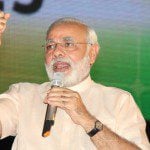Last updated on: March 17, 2015 at 6:04 am
By
CNA Daily News
Vatican City, Mar 17, 2015 / 12:04 am (CNA/EWTN News).- During his address to the bishops from Bosnia and Herzegovina on Monday, Pope Francis urged them to foster reconciliation and peaceful coexistence in their country, which has been marked by ethno-religious tensions. “The society in which you live has a multicultural and multi-ethnic dimension. And you have been entrusted the task of being fathers to all, in spite of material limits and the crisis within which you work,” he said March 16. “May your heart always be large enough to accommodate all, just as the heart of Christ is able to receive in itself – with divine love – every human being.” He began by looking forward to his visit to Sarajevo, the nation's capital, which is scheduled for June 6, saying he will “enjoy with your people how good and pleasant it is when brothers dwell in unity.” Pope Francis' words focused on emigration; he said that “I have prayed for … all those constrained to seek refuge abroad from war, unemployment, and a lack of prospects.” Riots broke out in Bosnia and Herzegovina in February 2014 over unemployment – the rate is between 40 and 50 percent, with unemployment rates among young people at nearly 75 percent. Moreover, following its independence upon the break-up of Yugoslavia, the country was embroiled in the Bosnian War from 1992 to 1995 in which genocide and ethnic cleansing took place. The resulting emigration “evokes the difficulty of return for many of your co-citizens, the scarcity of sources of work, the instability of families, the emotional and social laceration of entire communities, the practical precariousness of many parishes, and the still fresh memories of conflict, both at a personal and community level, in which wounded hearts are still painful,” Pope Francis reflected. “I therefore encourage you to spare no energies in supporting the weak, helping – in all ways possible – those who have a legitimate and honest desire to remain in the land of their birth, bring succour to the spiritual hunger of those who believe in the indelible values, born of the Gospel, that throughout the centuries have nurtured the life of your communities.” Bosnia and Herzegovina is effectively divided among its major ethnic groups: Muslim Bosniaks constitute some 48 percent of the population; Orthodox Serbs 37 percent; and Catholic Croats 15 percent. In this fractured land, Pope Francis reminded the bishops that “every Christian community knows that it is called upon to open itself up and to irradiate the light of the Gospel; it cannot stay closed within its traditions … it must come out of its 'enclosure', firm in faith, supported by prayer and encouraged by pastors, to live and announce the new life of which it is a depository, that of Christ, Saviour of all men.” He encouraged “initiatives that can extend the presence of the Church beyond liturgical parameters, assuming with imagination every other action that may affect society, bringing with it the fresh spirit of the Gospel. Every person needs, even without knowing it, to encounter the Lord Jesus.” Reflecting again on emigration, Pope Francis told the bishops to “seek to promote a solid social pastoral ministry in relation to the faithful, especially the young, to ensure that consciences are formed, willing to remain in their own territories as agents and key actors in the reconstruction and the growth of your country, from which they cannot expect only to receive.” In this ministry, he noted the importance of the Church's social teaching, saying it is “a way of overcoming the residue of old materialism that still persists in the mentality and behaviour of some sectors of the society in which you live.” Noting their pastoral, ecumenical, and interreligious ministry, Pope Francis reminded the bishops they are fathers to all, while admonishing them that “this does not absolve you of the need to give open and frank testimony of your belonging to Christ.” In this respect he urged the bishops to learn from their priests, religious, and laity, and then encouraged them to foster good relations between secular and religious priests. “In this year dedicated to Consecrated Life, we must show that all charisms and ministries are destined to the glory of God and the salvation of all men, taking care to ensure that these are effectively orientated towards the edification of the Kingdom of God and not contaminated by partial aims; that they are carried out in a regime of human and fraternal communion, bearing each other's burdens with a spirit of service.” Pope Francis concluded by exhorting the bishops to communion: “I am aware that historical events make Bosnia and Herzegovina different in many areas. And yet you are a single body: you are Catholic bishops in communion with the Successor of Peter, in a frontier location. One word alone emerges spontaneously from my heart: you are in communion. Although at times imperfect, such communion is to be pursued vigorously at all levels, setting individual peculiarities aside.” “It is necessary to act on the basis of your belonging to the same Apostolic College; other considerations are of secondary importance and are to be analyzed in the light of the catholicity of your faith and of your ministry.” Read more















